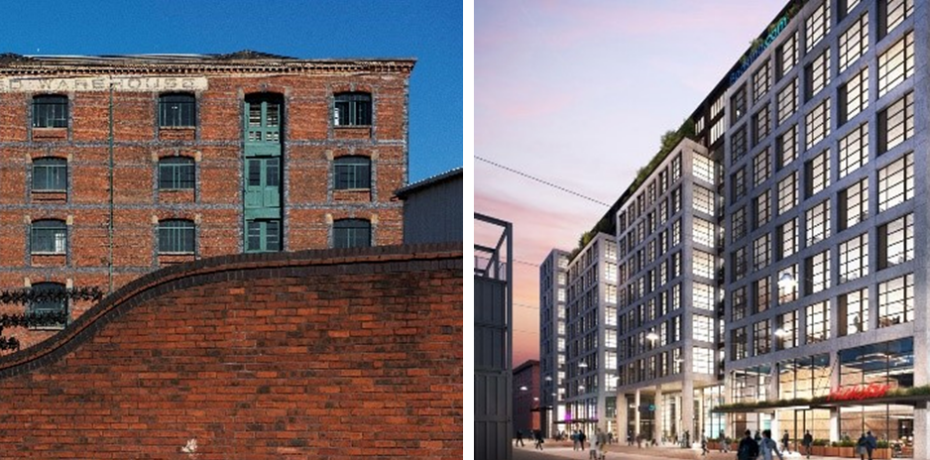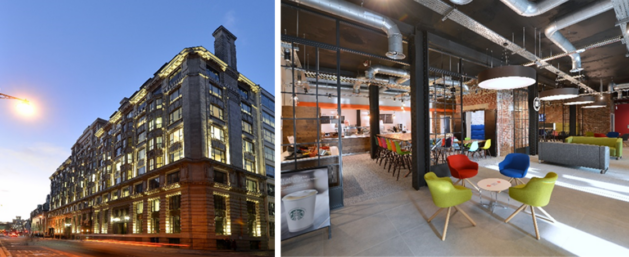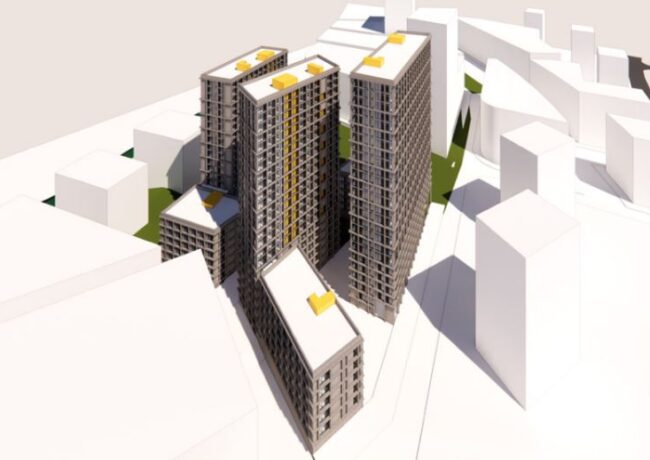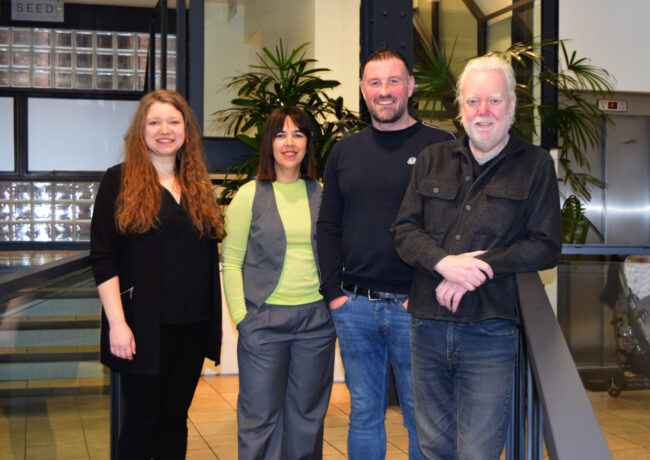Commentary
COMMENT | Manchester office take-up strong despite Covid-19
 OBI has launched market leading research software that provides the most comprehensive database of commercial workspace in Manchester city centre, and shows a positive outlook for the office market in 2020, write the consultancy’s Andrew Crabtree and Paul Mills.
OBI has launched market leading research software that provides the most comprehensive database of commercial workspace in Manchester city centre, and shows a positive outlook for the office market in 2020, write the consultancy’s Andrew Crabtree and Paul Mills.
Our invaluable tool can be used by landlords and developers, as well as occupiers seeking workspace in Manchester city centre, to track availability and void rates for specific property types across the city.
Using the software, we have undertaken an in-depth analysis of the Manchester workspace market in the first quarter of 2020, highlighting current and future trends, and considering future prospects for the city as the UK emerges from Covid-19.
In a post-Brexit, pre-Covid-19 world, the signs for the Manchester workspace market were positive with another strong year forecast in terms of occupier take-up in 2020. Despite the lockdown announcement in Q1, a total of 306,000 sq ft of offices were transacted in Manchester city centre across 58 workspace lettings, exceeding the five-year Q1 average of 290,000 sq ft, our data show.
Shortage of Grade A workspace, combined with improved refurbished workspace, continues to place upwards pressure on headline rents with 73% of transactions completing above £20 per sq ft in Q1 2020, up from from 66% in 2019. Prime headline rents have hit a record high of £36.50 per sq ft and, with quoting rents of £40 per sq ft, we were on course to see continued rental growth that may now be dampened in the immediate term by Covid-19.
In Q1, the city’s central core sub-district remained the most active, accounting for 38% of total transactions. Since we started recording data on the speed of lettings in Q3 2017, workspace suits within the St John’s and Education & Science Quarter districts have leased the fastest out of all city-centre districts – as the majority of transactions over the period have been pre-lets secured at Circle Square and Enterprise City.
The delivery of both of these schemes will offer high-quality mixed-use development. At the same time, the fast rate of absorption illustrates that occupiers are increasingly attracted to large scale, campus-style developments, offering the opportunity to scale with high levels of amenity and a clear long-term vision for the schemes.
Workspace classified within the Grade B Period Refurbished category was the quickest to lease in Q1 2020, being on the market for an average of nine months.
Demand for period buildings is always strong in Manchester, primarily driven by occupiers from the technology, media and telecoms and digital and creative sectors. These buildings are in locations where rental values are between £20-£25 per sq ft. Landlords that have ‘pared back’ their refurbishments within period buildings and incorporated additional amenities have been able to quote competitive rents and attracted businesses at a quicker rate.
There is evidence of period refurbished buildings that have been over-specified, seeking rents in excess of £27.50 – £30.00 per sq ft. This, coupled with a lack of communal spaces, means that the buildings have been slow to lease.
Workspace suites within the 1,000 sq ft-2,500 sq ft size band were the fastest to lease in Q1, taking on average nine months, and were also the most active size band with 21 transactions in total over the quarter, illustrating the strong demand from Manchester’s diverse community of SMEs. These occupiers are the heartbeat of the city and it is important that Manchester landlords are supportive of them during and after the pandemic.
Our data shows that landlords are beginning to subdivide suites to capitalise on the strong demand within this 1,000 sq ft – 2,500 sq ft category. Aberdeen Standard has taken this approach at 55 Princess Street, completing a letting to Belgian data company Bureau Van Dijk after subdividing an 8,000 sq ft floor plate into three separate suites to offer different levels of fitted out and furnished workspace with a central amenity hub.
Meanwhile, 2019 saw the emergence of Manchester landlords competing with managed workspace operators by delivering fitted out, flexible workspace solutions. This trend continued into Q1 2020 with Allied London’s All Work & Social brand securing GP Bullhound and Cowgill Holloway in fitted suites on all-inclusive rental agreements at ABC. These suites were leasing even during the construction phase of refurbishment.
From 2018 to 2019, the average speed of letting for fitted suites was 8.1 months. Of the suites leased in Q1 2020, those that contained fit-out took 6.1 months to lease when compared to 12.7 months for suites finished to an open category A standard. The Q1 figures therefore illustrate the acceleration of the absorption rate of fitted out solutions.
As we emerge from lockdown, occupiers will be seeking to minimise their upfront capital expenditure. Landlords that deliver fitted out solutions, offer transparent all-inclusive occupational costs and flexible lease terms can be confident that their workspace suites will be absorbed at a quicker rate.
Looking forward, it is uncertain when normal business will resume and there are testing times ahead. However, the Manchester workspace market and businesses in the city have always been resilient and some deals are still progressing. Transactions that have concluded during lockdown include serviced operator Regus completing on 26,400 sq ft at St James Tower, and health-tech business Intellicentrics completing on 7,000 sq ft at 55 Spring Gardens.
If the current lockdown restrictions are eased within the next month or two, we believe we will still start to see an increase in activity among occupiers with pending lease events or that are attempting to realign their property strategies.
Current circumstances limit occupiers’ ability to progress with relocations due to uncertain real estate strategies and delivery timescales. In the immediate term, occupiers will focus on cost, but also on health and wellbeing when selecting their workspace. They will therefore want to work with landlords that seek to facilitate a safe and healthy working environment.
OBI’s experience during the lockdown period is that occupiers are not doubting the need for an office, but that in the immediate term contemplating the size of their office, the term they are committing to and the capex required to fit out new space.
- Andrew Crabtree and Paul Mills are part of the transactions and asset management team at property consultancy OBI







